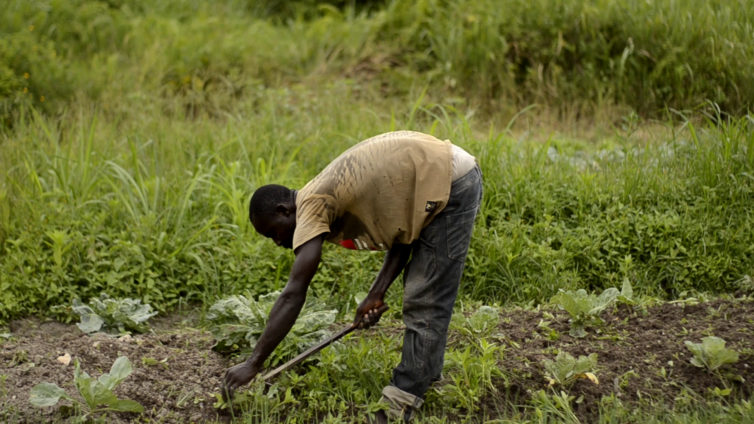
Audio By Carbonatix
The rising cost of agriculture inputs, including fertilizer, is taking a huge toll on crop production and food prices.
In Ghana, high cost of fertilizer can lead to less production.
To mitigate the impact of the high cost of fertilizer on food security and to strengthen food system resilience in Ghana, SOS-GrEEn is promoting the production of organic fertilizer in some regions.

Frank Otu Acheampong spends over 2,000 Ghana cedis buying 6 boxes of fertilizer for his ten acre farm.
The high cost of farm production has affected his farm business financially.
"After SOS-GrEEn trained us on how to produce organic fertiliser with waste, I don't buy organic fertilizers anymore and this has help me to be financially stable," he said.
Currently, all inorganic fertilizers are imported with Nitrogen Phosphorus and Potassium (NPK) taking about 50% of the imports while urea, ammonia and the rest cumulatively take the remaining 50%.
In 2020, Ghana imported about 620,000 metric tonnes of fertilizer to feed the agricultural sector, especially for the planting for food and jobs programme, which had a significant impact on production.
SOS-GrEEn has trained farmers in the Ashanti and Western regions to make organic fertilizer to mitigate the challenges faced by farmers.

According to farmers, including Frank, "opting for organic fertilizer for his farm has improved yields and reduced cost"
Agnes a farmer said, "The training has really helped improve my rice farming. I use to spend the little I have on inorganic fertiliser but after learning how to produce fertilizer locally, I spend less on my own 3 acre of rice."
The SOS-GrEEn Project under the EU and UN Capital Development Fund (UNCDF) is effectively managing community waste and utilizing organic manure as fertilizer to reduce the presence of POPs (Persistent Organic Pollutants) in the environment while securing higher crop yields.

"The project has the goal of reducing the use of inorganic manure on farms and boost harvest. As part of our green agenda the skills we've equip the beneficiaries with to produce organic fertilizers will conserve the earth,"SOS-GrEEn Project Coordinator, Shaibu Fuseini revealed.
Latest Stories
-
Kusaal Wikimedians take local language online in 14-day digital campaign
22 minutes -
Stop interfering in each other’s roles – Bole-Bamboi MP appeals to traditional rulers for peace
38 minutes -
President Mahama to address nation in New Year message
1 hour -
Industrial and Commercial Workers’ Union call for strong work ethics, economic participation in 2026 new year message
3 hours -
Crossover Joy: Churches in Ghana welcome 2026 with fire and faith
3 hours -
Traffic chaos on Accra–Kumasi Highway leaves hundreds stranded as diversions gridlock
3 hours -
Luv FM Family Party in the Park: Hundreds of families flock to Luv FM family party as more join the queue in excitement
3 hours -
Failure to resolve galamsey menace could send gov’t to opposition – Dr Asah-Asante warns
3 hours -
Leadership Lunch & Learn December edition empowers women leaders with practical insights
3 hours -
12 of the best TV shows to watch this January
4 hours -
All-inclusive Luv FM Family Party underway with colour, music, and laughter as families troop in to Rattray Park
4 hours -
Jospong Group CEO, wife support over 5,000 Ghanaians with food, cash on New Year’s Day
6 hours -
Life begins at 40: A reflection on experience and leadership
6 hours -
Maresca leaves Chelsea after turbulent end to 2025
7 hours -
NPP still hurting after 2024 loss – Justin Kodua
7 hours

